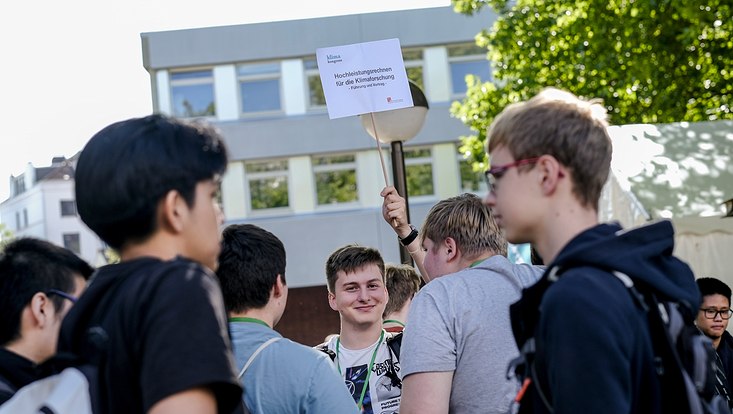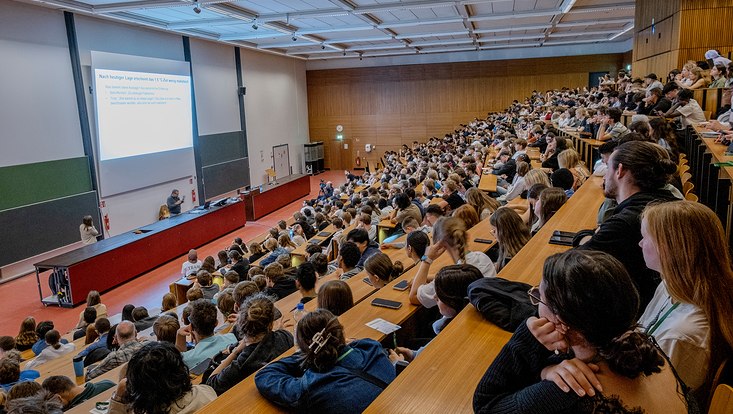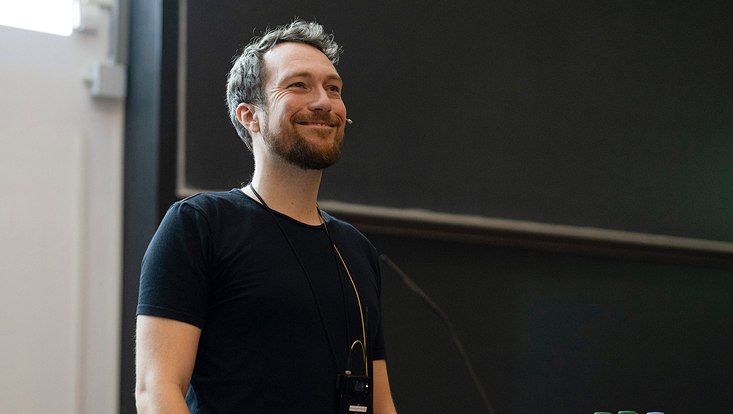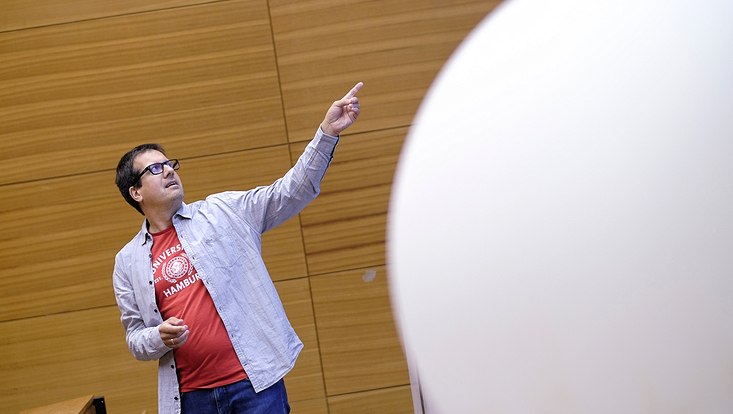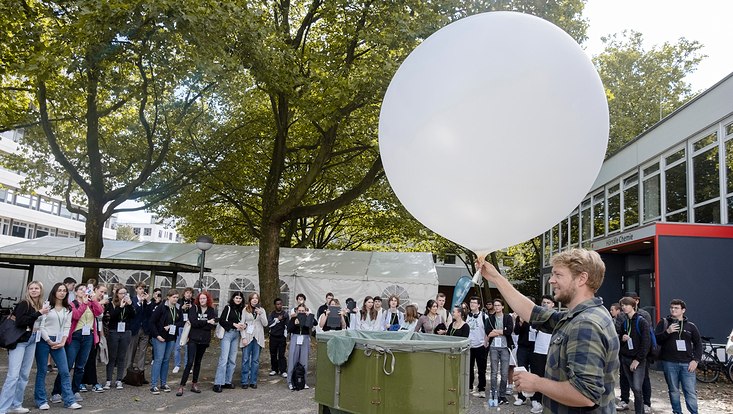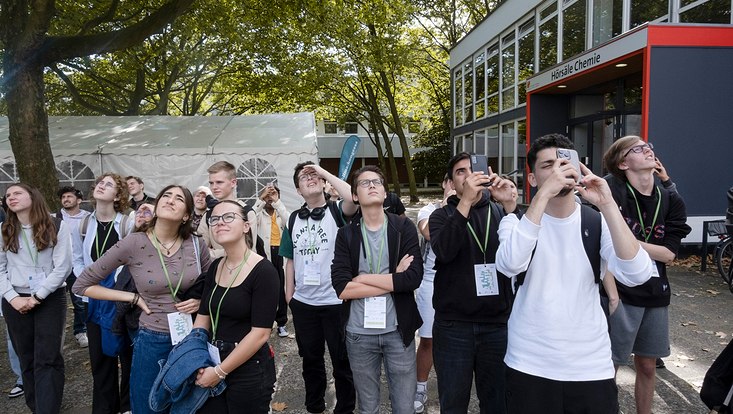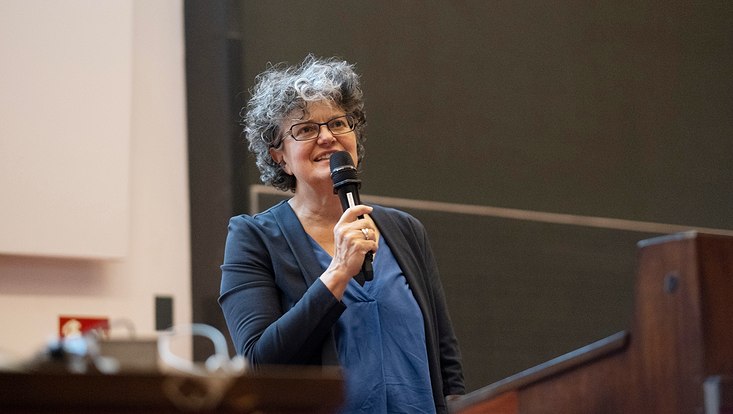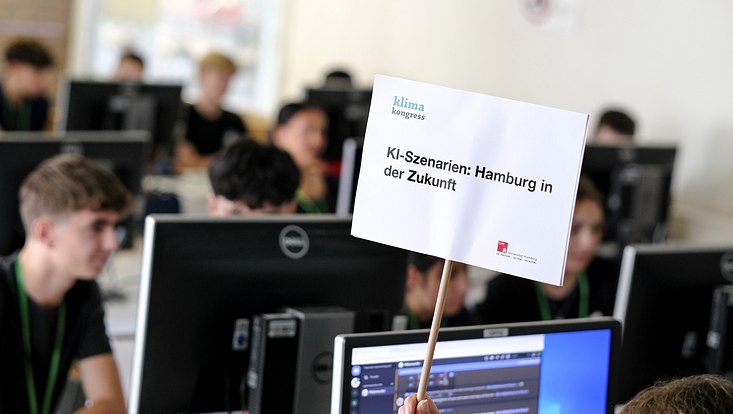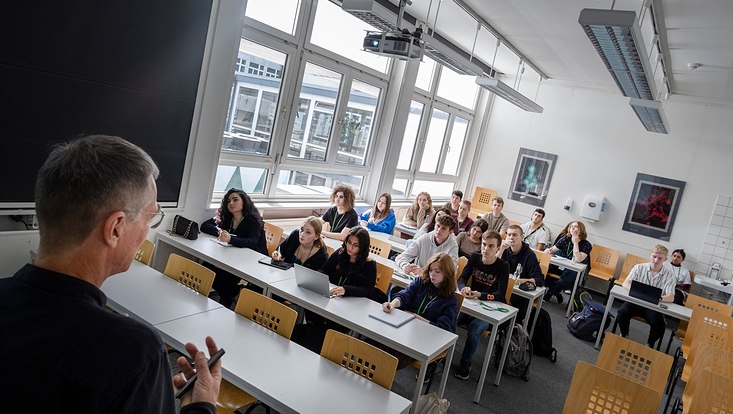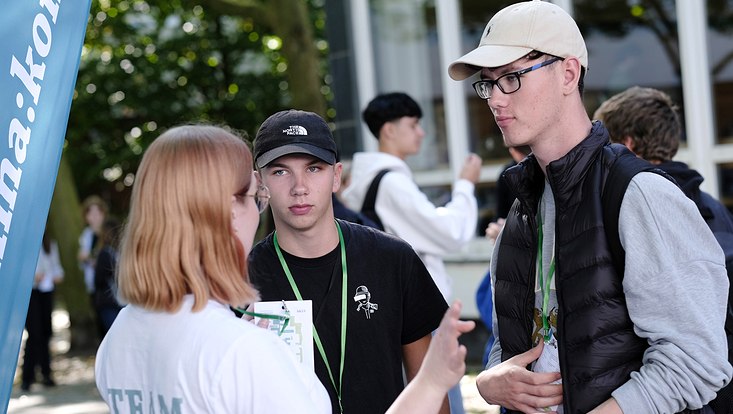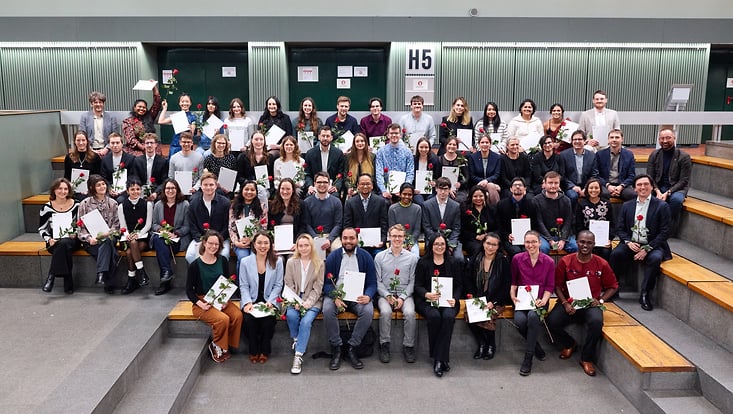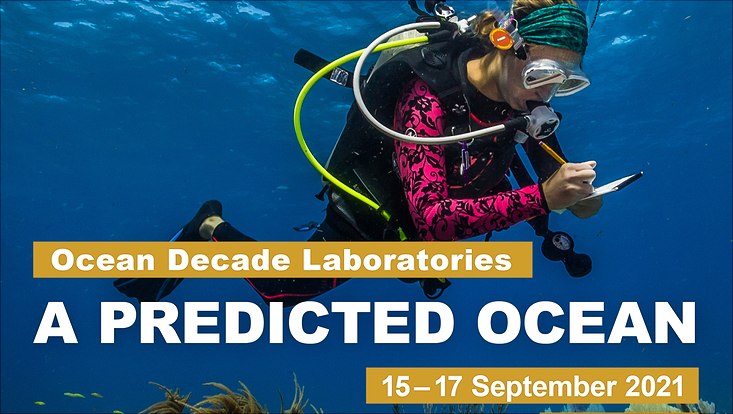6th Student Climate Congress at Universität HamburgClimate Research and Future Scenarios
29 September 2023, by Franziska Neigenfind
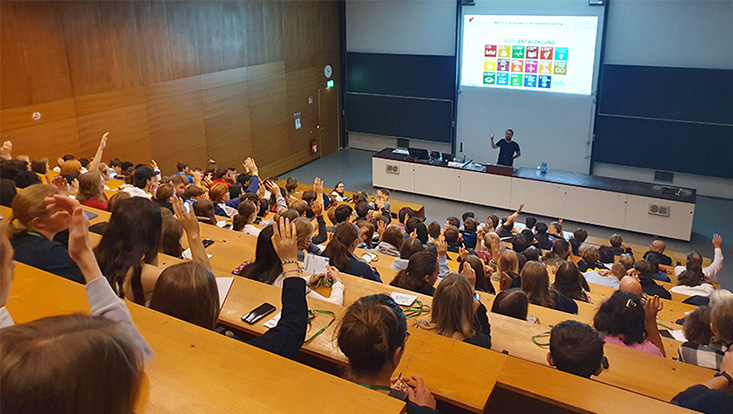
Photo: UHH/CEN/F. Neigenfind
Under the motto “Climate Research and Future Scenarios,” the sixth Student Climate Congress was held on September 21 in Hamburg. More than 650 schoolchildren accepted the invitation to learn about the latest research on climate change, engage in discussions with researchers, and conduct some experiments of their own at the Universität Hamburg campus. Experts from CLICCS and the CEN took part, giving a number of presentations – e.g. on fundamental findings in the natural sciences and their potential implications for a future-ready society. “It was important to me to show that global temperatures and the frequency of extreme weather events can temporarily increase even if we succeed in reducing greenhouse-gas emissions,” says Dr. Leonard Borchert. “I was very impressed by the students’ level of interest, how much they already knew, and their great questions.”
When it comes to global warming, why does every tenth of a degree count? Which climate extremes can we expect from climate change? What can be predicted and how do researchers actually do it? The experts reported on these and many other aspects, before discussing them with the attendees. For example, in a workshop with Dr. Franziska S. Hanf, they explored how climate risks emerge in cities as systems of human/environment interaction– and gained a better grasp of how complex climate adaptation is, using the City of Hamburg’s efforts as an example. Together with Prof. Felix Ament and his team, participants sent a weather balloon on a 90-minute-long flight through the atmosphere to find out what was happening in the “weather kitchen” above our heads. Universität Hamburg’s wind tunnel laboratory also opened its doors, offering guests the chance to see how the atmospheric boundary layer can be modelled in miniature – and how doing so can help find the answers to questions on the city’s local climate.
The goals of the Student Climate Congress are to foster a better understanding of climate change and find ways to adapt to its impacts. But it’s also about introducing future university students to the natural sciences disciplines. The event is coordinated by the Natural Science & Technology (NAT) initiative and Hamburg’s secondary schools.

